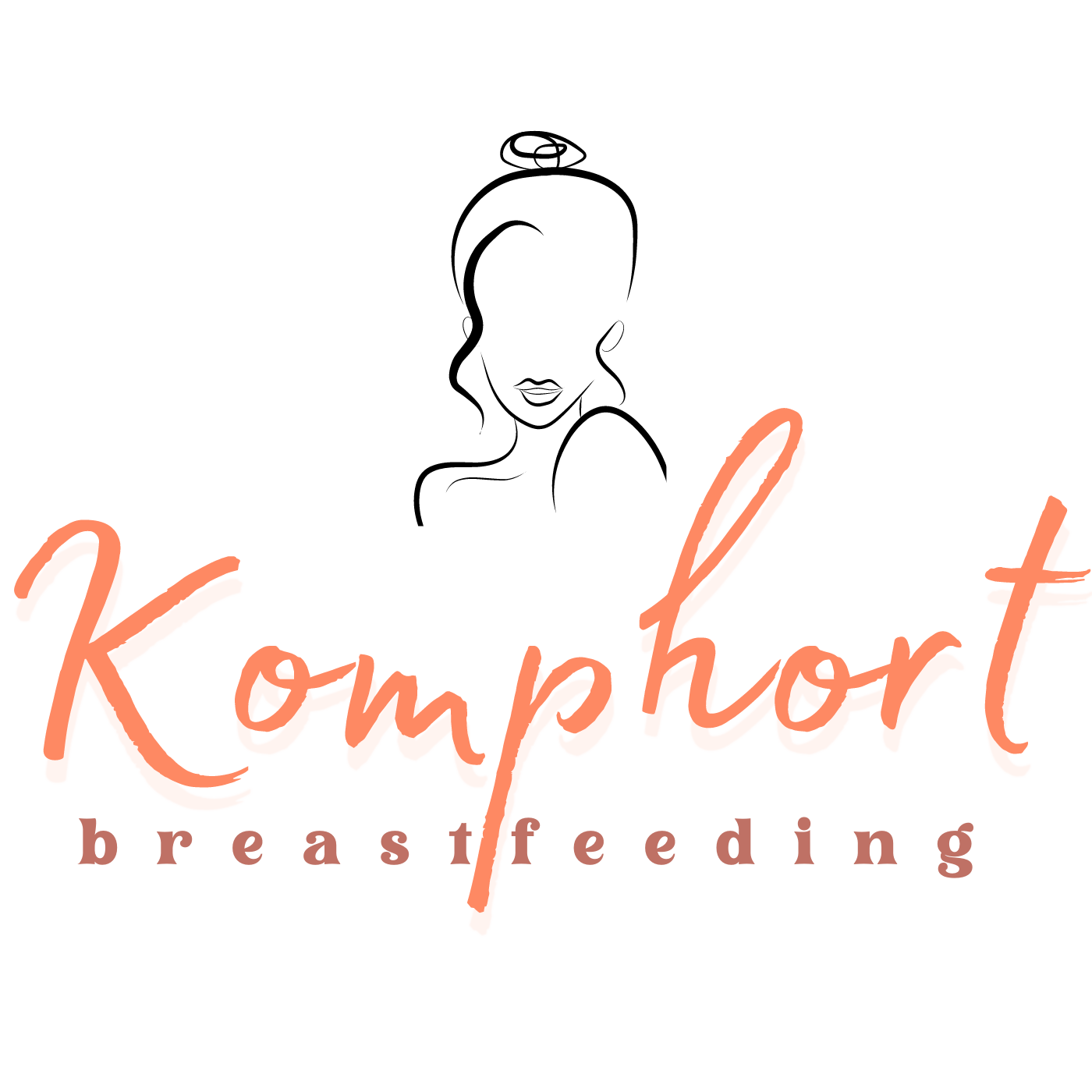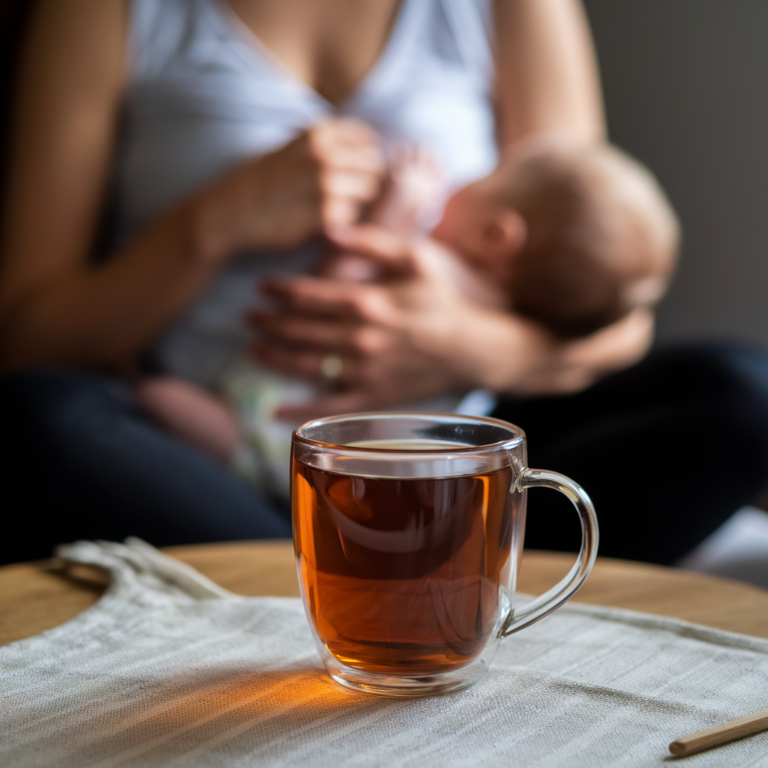Are you pregnant, breastfeeding, or a mama to a young child and feeling a bit overwhelmed by the idea of breastfeeding diet with allergies? Do thoughts about family allergies or puzzling baby symptoms have you searching for answers? Take a deep breath, mama, you are exactly where you need to be! As a breastfeeding specialist and nurse, I want you to know – you’re in good company. Let’s explore this journey together.
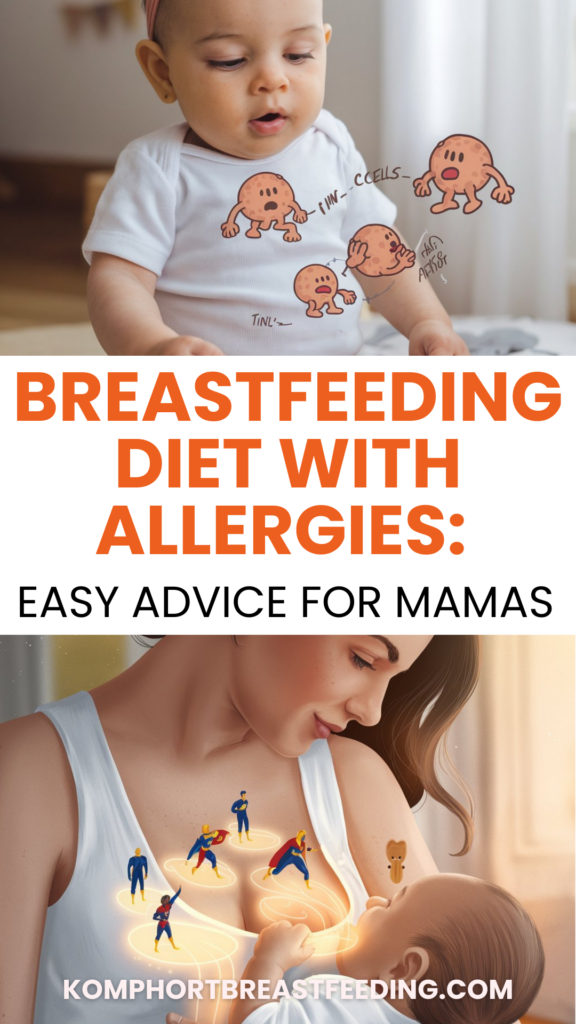
We’ll talk about what baby allergies really are, how to think about your own diet while breastfeeding, and how to see if your baby might have an allergy. It’s usually not as scary as it seems online! Plus, we’ll give you easy tips and clear up some common misunderstandings. So, get comfy (maybe with a snack – you deserve it!), and let’s learn about breastfeeding diet with allergies together!
Baby Allergies Explained: What’s Really Happening?

First, let’s understand what baby allergies actually are. We’re usually talking about food protein allergies in babies. Basically, your baby’s body’s defense system, which is still learning, mistakes a harmless food protein for something harmful. Imagine it like your baby’s bodyguards (their immune system) getting confused and thinking a friendly person (a food protein) is a bad guy!
This mistake causes a reaction, which can cause different signs. These signs can be mild to stronger, and might be things like:
- Skin problems: Like rashes, eczema flare-ups, itchy bumps – red spots that can show up on their skin.
- Tummy troubles: Like bad gas, lots of fussiness (like colic), loose poop, throwing up, or even a little blood in their poop. Basically, an upset tummy.
- Breathing issues: Runny nose, cough, noisy breathing – sometimes like cold symptoms. Rarely, in serious cases, it can be hard to breathe, a bit like asthma.
It’s important to know that not every baby who spits up or has a rash has a food allergy. Babies are naturally messy and their bodies are still developing! But, if you see a few of these signs together, or if they happen regularly after feeding, it’s good to check it out.
Also, remember that food intolerance is not the same as a food allergy. For example, lactose intolerance, common in grown-ups but rare in babies, is a digestion problem, not an immune reaction. Food allergies, though, involve the body’s defenses and can affect more parts of the body. We’re mainly talking about food allergies today, but it’s helpful to know the difference.
Breastfeeding and Allergies: The Amazing Connection

Now, let’s talk about the super helpful thing for baby feeding: breastfeeding! You’ve likely heard “breast is best,” and for allergies, this is very true. Breastfeeding can actually help prevent or lessen baby allergies. How great is that?
Here’s the magic: breastmilk is perfect for your baby. It has special protectors and body-defense helpers that strengthen your baby’s own defense system and protect their sensitive gut. This strong gut acts like a wall, making it harder for food proteins to cause an allergic reaction. Think of breastmilk as giving your baby tiny bodyguards against allergens!
Many studies and pediatric experts support the idea that breastfeeding helps protect against allergies. Research shows that breastfeeding lessens a baby’s chance of becoming sensitive to an allergen. That’s a pretty awesome bonus, right?
Now, some of you might be thinking: “But if I eat allergy-causing foods while breastfeeding, won’t those allergens get into my breastmilk and hurt my baby?” This is a common worry. Let’s talk about it.
The Breastfeeding Diet Question: Do YOU Need to Avoid All the Good Stuff?

Let’s clear up a big misunderstanding. Unless your doctor tells you differently, doctors do not recommend avoiding foods while breastfeeding, even if allergies are in your family. Great news, right?
For a while, it was advised that breastfeeding moms should avoid common allergy foods like peanuts, tree nuts, milk, eggs, soy, and wheat to prevent baby allergies. But, lots of research now shows that this strict diet for breastfeeding moms is not needed for most women and might even be bad.
Here’s why: When you eat a variety of healthy foods while breastfeeding, tiny bits of food protein from your diet do get into your breastmilk. And guess what? This is actually good! Being exposed to small amounts of these food proteins through breastmilk early on can help your baby get used to them. It’s like introducing those “friendly person” food proteins slowly and safely, helping your baby’s bodyguards learn they’re not bad after all.
Think of it as a tiny training program for your baby’s body defenses, perfectly delivered in your breastmilk. Amazing how bodies work, huh?
So, unless you yourself are allergic to something, or your baby is showing clear signs of a food allergy (more on that soon), you usually do not need to cut out whole groups of foods from your diet while breastfeeding. In fact, limiting your diet too much can make it harder for you to get all the good stuff you need while breastfeeding, which is already tiring!
Instead, focus on eating a healthy, balanced diet with lots of fruits, veggies, whole grains, good protein, and healthy fats. Think about feeding yourself well – because when you’re healthy, your breastmilk is also super healthy for your baby
Read more: The Ultimate Guide to Pregnancy Diet: Essential Tips and Myths Busted
When to Think About a Food Allergy in Your Breastfed Baby: Trust Your Gut (and Watch Your Baby!)

Okay, so you don’t need to cut out foods just in case while breastfeeding. But what if your baby does show signs that make you think about a food allergy? When should you pay more attention and ask for doctor’s advice?
Here are some things to look for that might mean you should talk to your pediatrician about possible allergies:
- Eczema that won’t go away or gets worse: If your baby has eczema that’s not getting better with normal skin care, or it suddenly gets worse, a food allergy could be playing a role.
- Sudden fussiness, colic-like signs, or reflux: All babies can be fussy and spit up, but if you notice a sudden change in your baby’s behavior, especially after feedings, like lots of crying, arching their back, or more spit-up, it’s worth talking to your doctor.
- Changes in poop: Loose poop, hard poop, mucus in poop, or blood in poop are all possible signs of a food allergy affecting their tummy.
- Throwing up: Occasional spit-up is normal, but forceful or projectile vomiting, especially if it happens often after feedings, is something to talk to your pediatrician about.
- Breathing signs: Ongoing cough, noisy breathing, runny nose (especially if it’s not a cold), or trouble breathing are less common but more serious signs that need attention right away.
- Hives or swelling: These are faster allergic reactions and you definitely need to get medical help quickly.
Remember, only if significant allergy signs and symptoms occur in the infant during exclusive breastfeeding should you even consider changing your diet. And even then, first talk to your pediatrician or a pediatric allergy doctor. They can help figure out if more tests are needed and what to do next.
Don’t try to guess yourself or start cutting foods out on your own without doctor’s advice. This can mean you avoid foods you don’t need to and miss out on important nutrients. Your pediatrician is your leader here – trust what they say!
The Elimination Diet: A Tool, Not the First Thing to Do

If, after talking to your pediatrician, they think your breastfed baby might have food allergies, they might suggest an elimination diet for you. Remember: this is not for every breastfeeding mom. It’s a special tool used only when there’s a real reason to think your exclusively breastfed baby has a food allergy.
An elimination diet, here, means temporarily removing certain foods from your diet to see if your baby gets better. The first food often removed is cow’s milk protein. Why cow’s milk? Because cow’s milk protein allergy is one of the most common food allergies in babies. And remember, we’re talking about cow’s milk protein allergy, not lactose intolerance, which is different.
If your pediatrician thinks it’s a milk protein allergy, they might suggest you generally need to exclude all cow’s milk protein from their diet for a trial, usually 2-4 weeks. This means carefully avoiding all foods and drinks with milk or milk products. This is not just milk itself, but also cheese, yogurt, ice cream, butter, and hidden milk things in many packaged foods. Becoming a label expert will be your new skill!
If, after cutting out cow’s milk protein for a few weeks, your baby gets much better, it suggests milk protein allergy could be the problem. Your pediatrician will then tell you what to do next, which might be putting milk protein back in your diet (with medical help) to make sure it’s really an allergy and plan for the long run.
If removing milk protein doesn’t help, other common allergy foods, like soy, eggs, or wheat, might be removed, one at a time, always with help from your pediatrician or a dietary expert who knows about food allergies.
It’s very important to work with a doctor or dietary expert when doing an elimination diet while breastfeeding. They can make sure you do it safely and right, watch your baby’s signs, and most importantly, make sure you are still getting all the good stuff you need while breastfeeding, even with some food limits. Remember, your health and food intake are important for both you and your baby!
Understanding Common Allergens: Cow’s Milk, and Others
Let’s focus more on cow’s milk, as it’s the most talked-about allergen in breastfeeding diet and allergies. As we said, cow’s milk protein allergy is common in babies. If your pediatrician thinks this is it, you’ll need to be great at finding and avoiding cow’s milk in your diet.
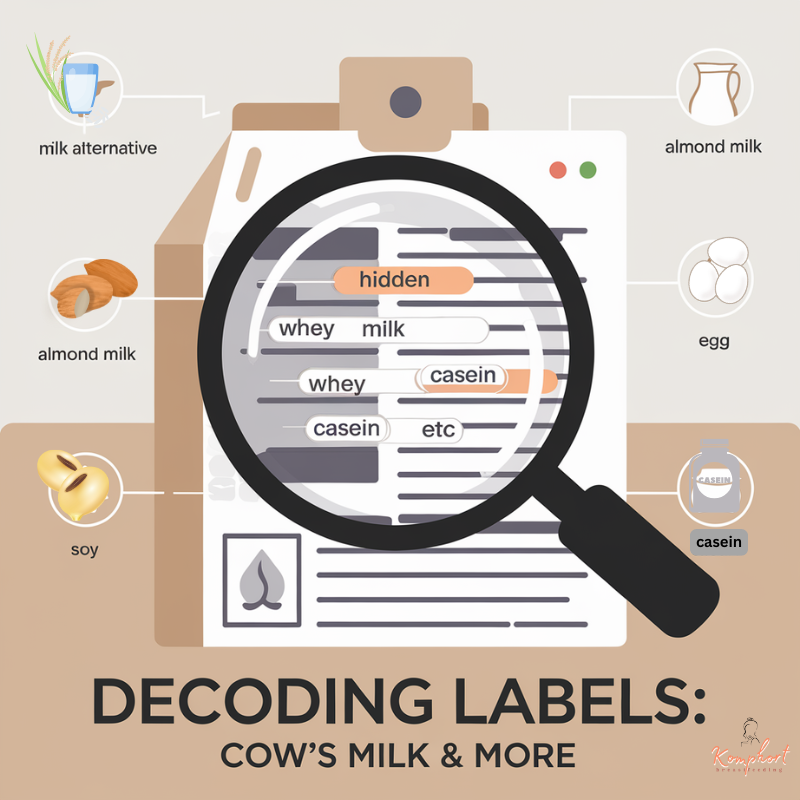
Becoming a Label Detective
Cow’s milk and milk things can be hidden under many names, like:
- Whey
- Casein
- Lactalbumin
- Milk solids
- Milk powder
Watch out for packaged foods, baked goods, sauces, and even some medicines that might have hidden milk ingredients. Restaurant foods can also be tricky, so ask about ingredients and how they are made when you eat out.
Luckily, there are many tasty and healthy milk alternatives now! Oat milk, almond milk, coconut milk, rice milk, and soy milk (if soy isn’t also a problem) can be good swaps in your coffee, cereal, and cooking. Just choose unsweetened and vitamin-added types for the best nutrition. And remember, these are for you, not necessarily for your baby unless your pediatrician specifically says so for older babies.
Besides cow’s milk, other foods sometimes thought about for baby allergy discussions include:
- Soy: Soy protein allergy can sometimes happen with cow’s milk protein allergy. If removing milk isn’t enough, soy might be looked at next.
- Eggs: Egg allergy is another common allergy in kids.
- Wheat: Wheat allergy is less common in babies than milk or egg allergy, but still possible.
- Peanuts and Tree Nuts: While giving peanuts to babies early can protect against peanut allergy, peanut allergy itself is still a concern for some families. But, regularly removing peanuts from a breastfeeding diet is usually not recommended unless a doctor specifically advises it.
Remember, food allergies are different for everyone. While cow’s milk is talked about most, your baby’s allergy – if they have one – could be to a totally different food. This is why expert help is so important for dealing with breastfeeding diet and allergies.
Clearing Up Common Myths: Facts vs. Misunderstandings

Let’s clear up a few more common myths and misunderstandings about breastfeeding diet and allergies, to help get rid of any confusion:
- Myth: “I have allergies, so my baby will for sure have allergies.” While family history matters for allergies, it’s not a given. Just because you or your partner have allergies, doesn’t mean your baby will automatically get them. And breastfeeding itself can help protect!
- Myth: “I need to avoid peanuts while breastfeeding to prevent peanut allergy in my baby.” As we said, current advice is not to routinely avoid peanuts or other common allergy foods during breastfeeding. Actually, giving peanuts early (around 4-6 months for most babies, as your pediatrician says) is now suggested to lower the risk of getting peanut allergy.
- Myth: “If my baby is fussy, it must be a food allergy.” Babies are fussy for tons of reasons! Gas, being too tired, too much going on, teething – there are many! While fussiness can be a sign of a food allergy, it’s definitely not the only, or even most likely, reason. Look for several signs together, not just fussiness, before thinking it’s an allergy.
- Myth: “Elimination diets are super hard and limited.” While an elimination diet does mean paying close attention to your diet, with good planning and help from a dietary expert, it can be doable and still healthy. And remember, it’s usually just for a short time! Plus, your baby feeling better makes it totally worth it.
- Myth: “Formula is always easier if allergies are a problem.” Actually, breastfeeding is often better if allergies are a worry! Breastmilk gives body defense help and can help build tolerance. If formula is needed in some cases, there are special gentle formulas, but these should be advised and watched by a pediatrician. Breastfeeding should always be supported as the best start and food, when possible.
Getting Help and Expert Advice: You’re Not Alone!

Dealing with breastfeeding diet with allergies can feel like a lot sometimes, but please remember, you are not alone! There are many health professionals ready to support you and your baby. Please ask for help and advice:
- Your Pediatrician: Your baby’s doctor is your main leader in this. They can check your baby’s signs, guide you on whether allergy tests or dietary changes are needed, and manage things medically.
- Registered Dietitian (RD): Especially if an elimination diet is suggested, a dietary expert who knows about food allergies can be super helpful. They can help you plan balanced and healthy meals while avoiding certain allergens, make sure you’re eating enough good stuff while breastfeeding, and help you put foods back in your diet later.
- Lactation Consultant (IBCLC): A breastfeeding expert can give support and advice on all parts of breastfeeding, including managing dietary changes while keeping your milk supply good and making breastfeeding work well.
- Allergy Doctor (Allergist/Immunologist): If your pediatrician thinks it’s a more complicated allergy situation, they might send you to a specialist, an allergy doctor. They can do allergy tests (skin or blood tests like IgE tests if needed) and give special care plans.
- Support Groups: Connecting with other breastfeeding moms dealing with allergies can be really helpful. Online groups, local breastfeeding support groups, and allergy support groups can give you a sense of community, shared stories, and good tips and support.
Remember, asking for expert support is a strong move, not a weak one. It’s about being the best, most informed advocate for your baby’s health and well-being. You’ve got this, mama!
Breastfeeding and Allergies: A Path to a Happy, Healthy Future

Breastfeeding is such a wonderful gift for your baby, especially when it comes to allergies. Thinking about baby allergies can feel scary, but know that you have the info and support to handle this pathway well.
Remember these key points:
- Breastfeeding helps protect against allergies and gives great body defense benefits.
- Regularly doing elimination diets for breastfeeding moms is usually not needed.
- Focus on eating a healthy variety of foods while breastfeeding.
- Be aware of possible allergy signs in your baby, but don’t worry too much about every little thing.
- Only if significant allergy signs and symptoms occur in the infant during exclusive breastfeeding should you think about changing your diet, and always with expert advice.
- Cow’s milk protein allergy is common, but other foods can also cause problems.
- Work closely with your pediatrician and other health pros – they are your team!
- Get support from other moms and allergy groups – you are not alone!
A Helpful Guide for New Moms
If you’re looking for practical breastfeeding tips, A New Mom’s Guide to Breastfeeding is here to help! Written by a nurse and certified breastfeeding therapist, this easy-to-follow ebook covers everything from latching techniques to feeding schedules and overcoming common breastfeeding struggles.
With 40 pages of expert advice, you’ll gain confidence in your breastfeeding journey while learning how to make it a more comfortable and enjoyable experience.
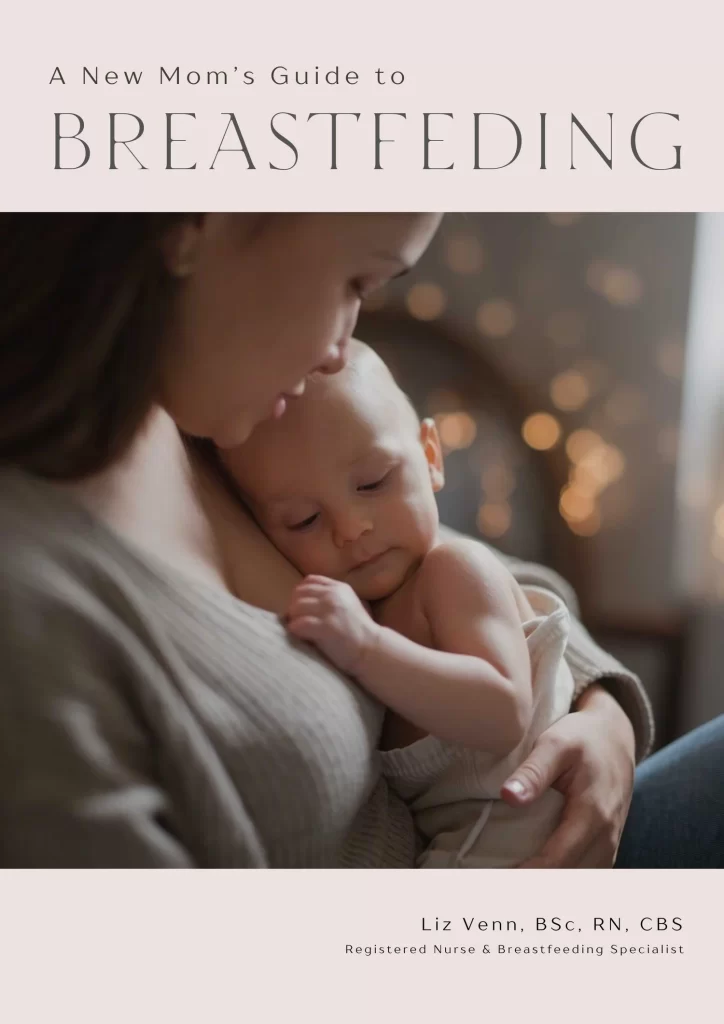
📖 Grab your copy today and get the support you need to breastfeed with ease!
Final Thoughts
Breastfeeding is a journey of love, connection, and yes, sometimes a few bumps. But with the right info and support, you can confidently handle breastfeeding diet with allergies and help your little one thrive. Embrace the amazing power of breastmilk, trust your instincts, and enjoy this special time with your baby. You’re doing great, mama!

And if you ever feel overwhelmed, just remember – you’re not just feeding your baby, you’re building their body defenses, nourishing them, and making a bond that will last forever. That’s pretty amazing, don’t you think?
Keep being awesome, moms!
Eager for More Parenting Wisdom?

Breastfeeding is a journey, and I’m here to support you every step of the way. If you’re looking for even more practical advice, real-life tips, and encouragement, be sure to check out my YouTube channel!
Whether you’re tackling common breastfeeding challenges or just need a confidence boost, you’ll find a wealth of resources to help you thrive on this amazing journey. Click here.
